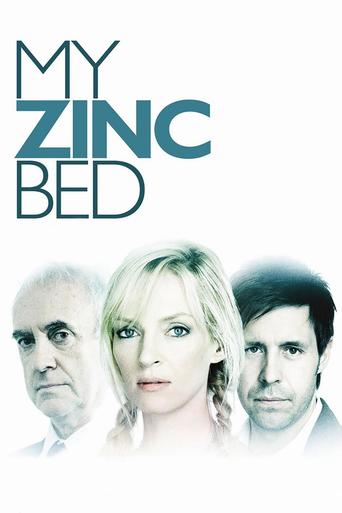

Good concept, poorly executed.
... View MoreFilm Perfection
... View MoreThis movie feels like it was made purely to piss off people who want good shows
... View MoreClose shines in drama with strong language, adult themes.
... View MoreNot quite sure what the film is trying to convey, but if it is implying that you have two choices - a life without passion in AA and life of passion and desire without AA and with active alcoholism, then that is incorrect and misleading. I don't understand why it is implying that joining AA to treat alcoholism is just a grim life of saying no to everything and denying yourself things out of fear of being triggered. That is not what AA is about. The goal is to be happy and functional. To flourish in all aspects of life. Some achieve it, some don't. The suggestion is to follow the tools of the program as fully as you can to achieve the maximum results. There's a reason they say "stick around for the miracle". People's lives improve in ways they never thought possible. Their lives get bigger.The grim life is either being an active alcoholic or gritting your teeth in abstinence but still being dysfunctional and miserable - a dry drunk. AA helps with much more than just stopping drinking. The real work begins after you stop the craving and stay sober. Then you use tools to maintain sobriety and deal with life "on life's terms".How can someone write about AA just by having friends in it, going to a few meetings or reading about it? If you don't get it, you don't get it. But it feels like someone saying probably all psychiatric medicine makes you a zombie and it's no life. That is not true either. Medicine can change and save lives. But you have to take it.Is this film positing that AA removes all possibilities in your life except a grim sobriety? It just isn't true. There is much joy, laughter, support and growth in AA. There is a whole syndrome behind alcoholism beyond drinking that is helped in AA: isolating, not asking for help, destructive behavior ("character defects"). Something feels very creepy in this film. As someone said elsewhere, if this film gives a suffering alcoholic a distrust of AA and causes them not to seek help, that would be an awful result.
... View MoreThis film is about a psychological tug of war between a rich guy and two recovering alcoholics.The first half of the film is just plain dialogs between people who do not even have any body gestures. To make matters worse, the scenes were shot with a statically positioned camera. The dialogs are probably meant to be sharp, crisp and challenging, but they turn out to be dull, repetitive and pretentious. Furthermore, the whole plot is so monotonous, pointless and narrow. It only repetitively talks about Paul's desire to stay abstinent despite Victor's challenges. And why did Victor challenge Paul in the first place? The filmmakers should have at least spend a little effort on character development."My Zinc Bed" is a huge waste of time.
... View MoreA quiet but tense piece, definitely not for those who hope for blatant excitement, being more a study of characters, each in his/her own privately nightmarish situation. Essentially a three-hander between Pryce, Considine and Thurman, all of whom turn in excellent performances of a solid script with many well observed turns of phrase and personality. Main weakness is how it dwells, for around 70 minutes, on alcoholic addiction to the exclusion of most else; but, if you know that going in, maybe you can handle it. Conversion from stage to screen works okay.FWIW, the end credits show it as co-production of BBC and HBO.
... View MoreI registered on IMDb simply so I could share my appreciation of this marvellous production.The three main characters were performed to perfection by the brilliant cast. Thank you for bringing this wonderful play to our screens. Good in all things except perhaps the extent to which it felt more like a stage production than a televisual one.Paddy Considine particularly was spellbinding as his performance ranged from a man teetering on the brink of self annihilation, convinced his slightest misstep would result in his end, to conflicted. Presented with the stark depiction of a safe life without passion or a passionate life doomed to disaster his inner turmoil was made clear to us, and we felt his turmoil, fear and excitement.
... View More